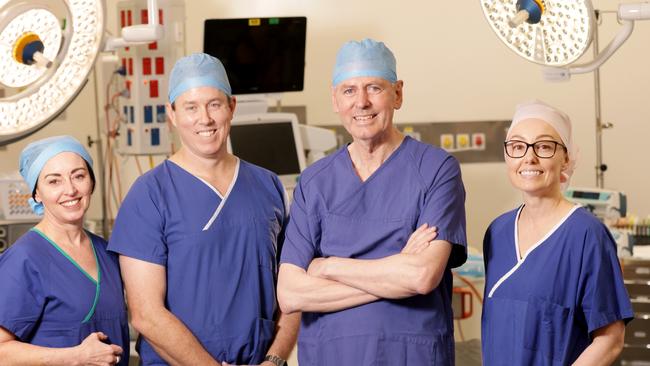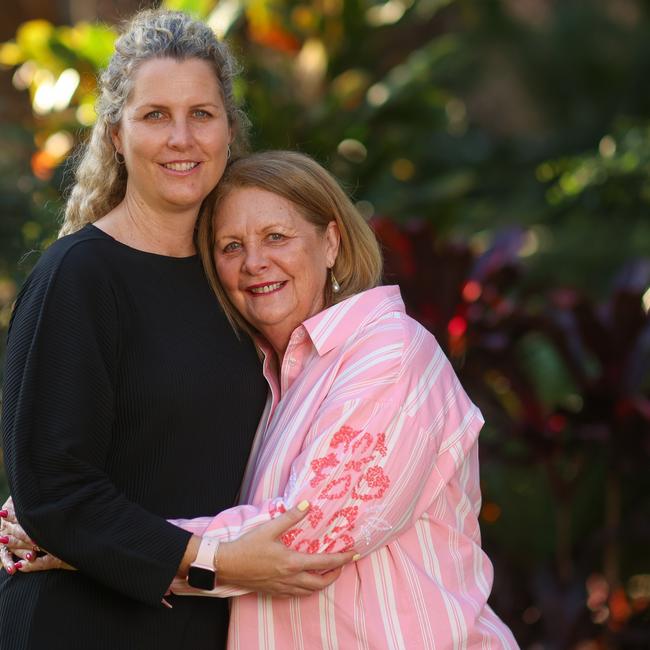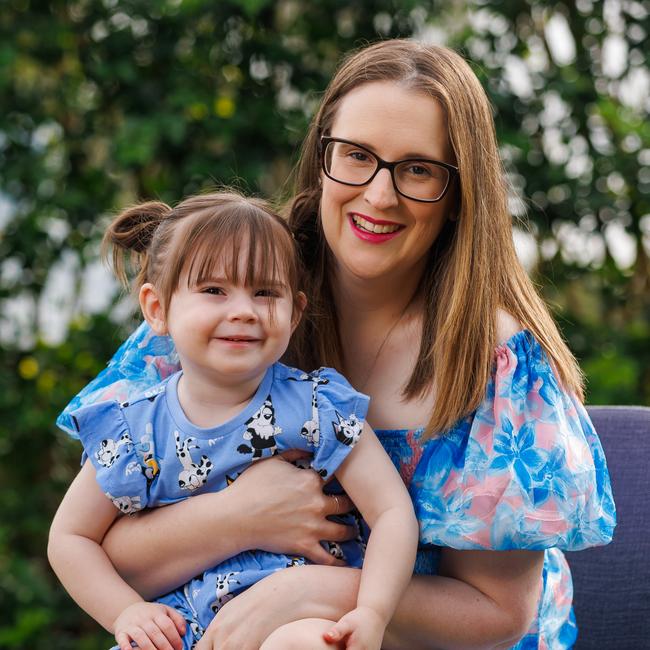
Professor Chris Pyke has treated more than 10,000 Queensland patients with breast cancer. Today, as he prepares for retirement, he reflects on an extraordinary three decades.
A breast cancer diagnosis can shake the very foundations of a woman’s life.
The ground she walks on suddenly feels unstable and her future is thrown into uncertainty. It’s a time when she needs a steady hand.
Breast surgeon Chris Pyke has been that steady hand for thousands of Queensland women for decades.
More than 10,000 breast cancer patients have passed through his consulting rooms since he began practising as a specialist in 1991 in Brisbane.
From the moment a patient’s paperwork lands on his desk Professor Pyke is all in. Compassion and knowledge go hand-in-hand. He’s a doctor who treats the person and not just the disease. At first, before treatment begins, a breast cancer diagnosis is a mindbender. Women learn quick-fast this is not just one disease – it comes in many forms with a variety of treatments and prognoses.
It is a long and frightening journey for many as getting the all-clear does not come quickly.
Surgery to cut out the disease must find clean margins or it’s back to the operating room for a second or maybe third attempt. Then often six months of chemotherapy follows and intensive radiation.
It is a complex disease and it hits one in seven women at some time in their lives.
In the maze of information it is doctors like Pyke who show patients the way out and help them regain trust in their bodies.

At 66, Pyke has retired from private practice at the Mater Hospital to give his full attention to patients in the public hospital. The veteran surgeon has witnessed how advances in medical science and in surgical techniques have improved the outcome for his patients as the years passed.
The professor is affectionately known as The Godfather. He’s trusted by his patients and a leader in his field.
He will never forget his first breast surgery more than 30 years ago.
It was a memorable one – a young mum who had a caesarean and a mastectomy in the same operation. Since then the number of patients needing mastectomies has dropped from almost 90 per cent to just 10 per cent in 2024.
The professor’s empathetic approach is stamped on his DNA as he has vivid memories of when he was a young man and both his sisters were diagnosed with cancer.
“I started working at the Mater in 1975 as a phlebotomist and became a medical student the year after,” he says.
“When I think back to my ‘why’, it was because of my sisters. My two lovely sisters both got cancer in their 30s while I was overseas doing more training in the UK and USA.
“With no family history, one developed acute myeloid leukaemia and the other stage two breast cancer.”

His beloved siblings had young families and they both underwent approved treatment including chemotherapy and both survived more than 20 years, which allowed them to achieve many milestones, including meeting their grandchildren.
“Having said this, the toll on their families and their treatment and recurrences was enormous – hyper-vigilance was the norm,” he says.
“Their cancers made me keen to do research but I was already on a pathway to surgery before they were diagnosed. I had already won my Fellowship at the Nottingham Breast Unit when my sister was diagnosed.
“If anything, their cancers, their suffering, their grace under duress and their family support were an inspiration for me – something to hold me to account. I felt that I was honouring their sacrifice by helping my own patients.”
There has been a revolution in the treatment of the disease since Pyke became a medical student in 1976.
While the five-year survival rate of those diagnosed with breast cancer is now more than 90 per cent, he reveals that when a death or a complication does occur it hits the medics hard. “When breast cancer patients die, it is a long farewell, with a lot of simultaneous support and grieving,” he says.
“Having said that, it is mostly a peaceful event – most have time to accept their looming mortality. That makes it enormously easier for their doctors, who continue to be of service until the end.
“By the end, most of the patients and doctors have spent a long time together, and there is a great sense of loss with the passing of each one.’’
Pyke, who treats about 300 new breast cancer patients each year, is a firm believer that “no one can underestimate the value of a woman’s health”.
“Women are the glue of our society, they have many roles. To be able to get them back up and functioning, and working, is a great achievement,” he says.
Pyke’s legacy extends beyond the thousands of patients he’s helped over the decades.
He’s also been instrumental in educating and mentoring Mater’s current breast surgeons.
Mater Private Hospital Brisbane was internationally accredited as a Centre of Excellence for breast cancer care last year.
“It is a testament to the incredibly talented surgeons we have doing world-class work at Mater,’’ Pyke says.
“Our patients will be in good hands, the next generation is better than me.”
THE TOUGHEST FIGHT
When her daughter was diagnosed with breast cancer two years after her own journey, Linda Stuhmcke knew that Chris Pyke was the man she needed by her side.
Former water polo Olympian Jodie Stuhmcke, 43, and her mother Linda Stuhmcke, 70, pictured, say Professor Pyke is known as The Godfather of breast surgeons for a reason. Linda says she was concerned about her daughter’s “she’ll be right” attitude and encouraged her to see Pyke, who had been her specialist.
“I knew we didn’t have much time to muck around,” Linda says.
“In my case, he was so reassuring during a time when I was so upset about everything. My family is my life and I prayed everythingwas going to be OK so I could look after them – Chris made that happen,” she says, wiping away tears.

Jodie detected a lump in her breast in December last year and had a biopsy done in January.
“Within 24 hours I had a call from my GP to say I had breast cancer,” Jodie says.
Jodie took her mother’s advice and had her first surgery with Pyke on January 30, five days after receiving her diagnosis. She says watching her beloved mum go through cancer treatment, to then discovering she herself had a more aggressive form of breast cancer, is something she cannot forget.
Two operations to clear the disease were unsuccessful, and Jodie required a bilateral mastectomy and plastic reconstructive surgery at Mater Hospital in South Brisbane which saved her life.
Jodie, who competed at the Athens 2004 Olympics, says: “Having cancer is the toughest thing I have been through in my life. I am an athlete. I am an Olympian. But this was another level,” she says.
Seven days after having both her breasts removed during an almost 11-hour operation, Jodie was relieved to hear she was “cancer free”.
FERTILITY ADVICE A BLESSING
Five years after being diagnosed with aggressive triple-negative breast cancer, Amy Gibbs is pregnant with her second “miracle” baby.
At just 27 years of age she found a lump in her breast which stemmed from having the BRCA Type 2 gene. Amy found out she was positive to the gene during gruelling chemotherapy treatment. Her father, brother and grandfather also carry the variant.

Amy, now 31, was advised by Chris Pyke to begin fertility conservation treatment before starting chemotherapy and other treatments, which went for six months.
“During these treatments I was put into medically-induced menopause to protect my ovaries and hopefully maintain function to conceive naturally,” Amy, a nurse at the Mater Private says.
“I also lost everything that I thought made me a woman – my long hair, beautiful eyebrows and eyelashes but my husband told me I looked beautiful each and every day.”
Gibbs is thankful for the advice she received from Pyke to preserve her fertility and says she was “very blessed” to have fallen pregnant naturally with her eldest daughter Emilia, 2, pictured above.
Her second baby is due in October.
“Professor Pyke pushed for me to be genetically tested, and I am forever grateful,” she says.
“It’s something I would have never considered. I was equipped with information to make a decision to have a bilateral mastectomy by Professor Pyke which helped alleviate the stress and anxiety of breast cancer recurrence for me.
“A lot of women wouldn’t be here today if it wasn’t for Professor Pyke.”
Amy says her children will have a 50 per cent chance of inheriting the BRCA Type 2 gene.

Add your comment to this story
To join the conversation, please log in. Don't have an account? Register
Join the conversation, you are commenting as Logout
US podcaster takes on Trump’s daughter
Glennon Doyle, the US podcast host and author, talks body image, resilience and addresses THAT Ivanka Trump controversy in a revealing new interview.
The new James St? Inside laneway’s swish dining boom
From fine dining to rooftop bars, the next chapter of Brisbane’s coolest new dining heartland will include four game-changing venues.